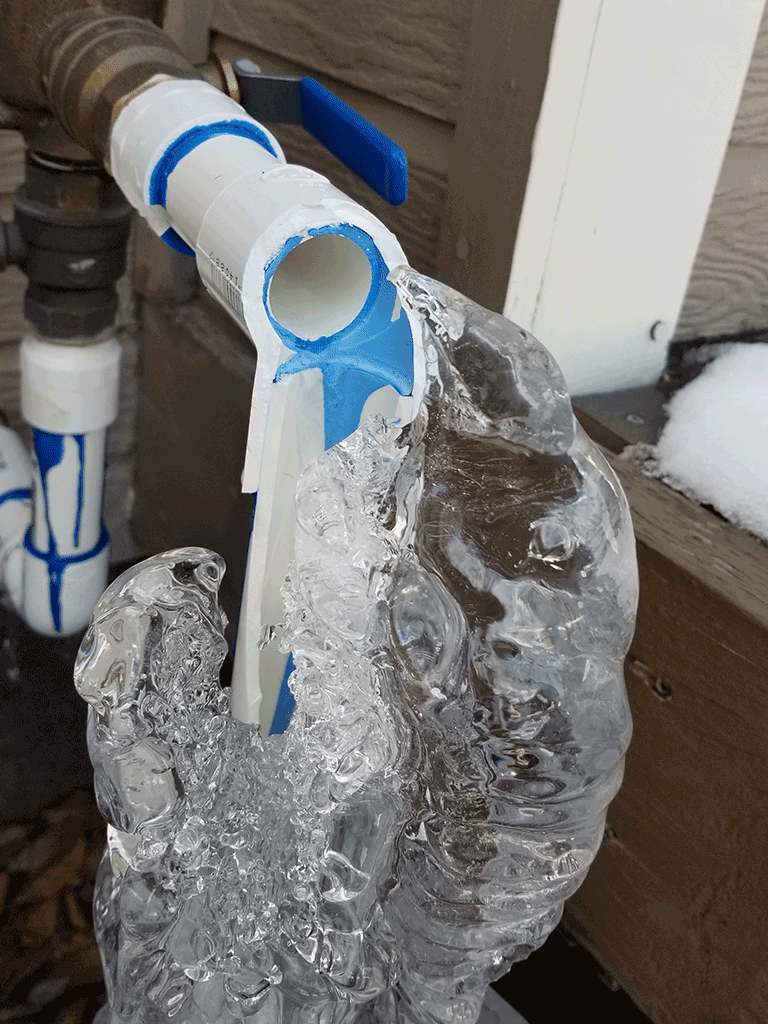Crucial Tips to Protect Against Frozen Pipes in Cold Weather
Crucial Tips to Protect Against Frozen Pipes in Cold Weather
Blog Article
Just how do you really feel about Helpful Tips to Prevent Frozen Pipes this Winter?

Cold weather can damage your plumbing, especially by freezing pipelines. Right here's just how to avoid it from taking place and what to do if it does.
Intro
As temperatures drop, the danger of frozen pipes increases, potentially causing expensive fixings and water damage. Understanding exactly how to avoid frozen pipes is crucial for homeowners in cool environments.
Recognizing Icy Pipelines
What triggers pipes to freeze?
Pipes ice up when revealed to temperature levels listed below 32 ° F (0 ° C) for expanded periods. As water inside the pipes ices up, it expands, putting pressure on the pipe walls and potentially creating them to break.
Risks and damages
Frozen pipelines can bring about water supply disruptions, property damages, and pricey repair work. Burst pipes can flooding homes and create extensive architectural damage.
Indicators of Frozen Piping
Identifying icy pipelines early can avoid them from breaking.
Just how to determine icy pipes
Seek decreased water circulation from faucets, uncommon smells or noises from pipes, and noticeable frost on subjected pipelines.
Prevention Tips
Protecting vulnerable pipelines
Wrap pipes in insulation sleeves or use warmth tape to shield them from freezing temperatures. Focus on pipelines in unheated or outside areas of the home.
Heating strategies
Keep interior rooms adequately warmed, specifically areas with pipes. Open up closet doors to allow cozy air to circulate around pipes under sinks.
Securing Exterior Pipes
Garden hose pipes and outdoor taps
Disconnect and drain pipes garden hoses before wintertime. Mount frost-proof faucets or cover outdoor faucets with insulated caps.
What to Do If Your Pipelines Freeze
Immediate actions to take
If you presume icy pipelines, keep faucets open to eliminate pressure as the ice thaws. Utilize a hairdryer or towels taken in hot water to thaw pipelines gradually.
Long-Term Solutions
Structural modifications
Take into consideration rerouting pipelines far from exterior walls or unheated areas. Add added insulation to attics, cellars, and crawl spaces.
Updating insulation
Buy top notch insulation for pipelines, attics, and wall surfaces. Appropriate insulation helps maintain constant temperatures and minimizes the danger of frozen pipelines.
Verdict
Preventing frozen pipelines calls for positive measures and fast responses. By recognizing the reasons, indicators, and safety nets, property owners can safeguard their plumbing during cold weather.
Helpful Tips to Prevent Frozen Pipes this Winter
UNDERSTANDING THE BASICS: WHY PIPES FREEZE AND WHY IT’S A PROBLEM
Water freezing inside pipes is common during the winter months, but understanding why pipes freeze, and the potential problems it can cause is crucial in preventing such incidents. This section will delve into the basics of why pipes freeze and the associated problems that may arise.
THE SCIENCE BEHIND FROZEN PIPES
When water reaches freezing temperatures, it undergoes a physical transformation and solidifies into ice. This expansion of water as it freezes is the primary reason pipes can burst. As the water inside the pipe freezes, it expands, creating immense pressure on the walls. If the pressure becomes too great, the pipe can crack or rupture, leading to leaks and water damage.
FACTORS THAT CONTRIBUTE TO PIPE FREEZING
Low Temperatures: Extremely cold weather, especially below freezing, increases the risk of pipes freezing. Uninsulated or Poorly Insulated Pipes: Pipes located in unheated areas, such as basements, crawl spaces, or attics, are more prone to freezing. Insufficient insulation or lack of insulation altogether exacerbates the problem. Exterior Wall Exposure: Pipes running along exterior walls are susceptible to freezing as they encounter colder temperatures outside. Lack of Heating or Temperature Regulation: Inadequate heating or inconsistent temperature control in your home can contribute to frozen pipes. PROBLEMS CAUSED BY FROZEN PIPES
- Pipe Bursting: As mentioned earlier, the expansion of water as it freezes can cause pipes to burst, resulting in significant water damage.
- Water Damage: When pipes burst, it can lead to flooding and water damage to your property, including walls, ceilings, flooring, and personal belongings.
- Structural Damage: Prolonged exposure to water from burst pipes can compromise the structural integrity of your home, leading to costly repairs.
- Mold and Mildew Growth: Excess moisture from water damage can create a favorable environment for mold and mildew growth, posing health risks to occupants.
- Disrupted Water Supply: Frozen pipes can also result in a complete or partial loss of water supply until the issue is resolved.
WHY CERTAIN PIPES ARE MORE PRONE TO FREEZING
- Location: Pipes located in unheated or poorly insulated areas, such as basements, crawl spaces, attics, or exterior walls, are at higher risk of freezing.
- Exterior Pipes: Outdoor pipes, such as those used for irrigation or exposed plumbing, are particularly vulnerable to freezing as they are directly exposed to the elements.
- Supply Lines: Pipes that carry water from the main water supply into your home, including the main water line, are critical to protect as freezing in these lines can affect your entire plumbing system.
- Underground Pipes: Pipes buried underground, such as those connected to sprinkler systems or outdoor faucets, can be susceptible to freezing if not properly insulated.
https://busybusy.com/blog/helpful-tips-to-prevent-frozen-pipes-this-winter/

Do you like more info about How To Avoid Freezing Pipes? Try leaving a remark down the page. We would be delighted to know your opinions about this content. Hoping that you visit us again in the future. In case you appreciated our article plz do not forget to share it. Thanks for taking the time to read it.
Call Today Report this page